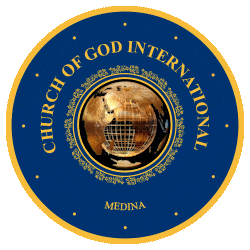HOW DID PASSOVER “MORPH” INTO EASTER – Blog 27
Date: 3/30/25
By: Bill Watson
Direct Comments to:
Clearly, Jesus Christ was Jewish! The Bible plainly says He sprung from the tribe of Judah [Heb. 7:14]. So, this is not a debatable issue. With that said, it stands to reason, Jesus never kept an Easter in His life. He was not involved in any observance of “Easter.” He had nothing to do with it! Why? Because, it didn’t come from Him––it existed long before His incarnation!
Yes, Easter was a well known observance and celebration among the heathens for hundreds, if not thousands of years, previous. It was known by different names, but was associated with many of the same fertility symbols, like eggs, rabbits, lily’s and chickens that are common with what Easter presents today.
So, if Jesus did not observe Easter, nor is there any Biblical record He instituted it, where in the world did it come from? And furthermore, what did Jesus observe, if anything? Both of these are good questions and present quite a historical story of subtle encroachments and infiltration into the early Christian Church over the first few hundred years, which ultimately caused the church to adopt it as a Christian holiday.
But, before we answer these questions, let’s consider some historical facts of how and who made the change from Passover to Easter. If we’re going to be honest about the history of this Spring holiday called Easter, we should recognize the early New Testament Christian church did not observe it––they observed the Hebrew Passover well after Jesus ascended back to the Father. Most encyclopedia’s will explain and confirm there is no indication the observance of Easter was kept by the apostles. They continued in the tradition Jesus Christ showed them throughout His life––and what was that tradition?
Notice what Paul said: “For I have received of the Lord (Paul received this information directly from Christ) that which also I delivered unto you, That the Lord Jesus the same night (Its a annual Holy Day, observed on Nisan 14th, once a year) in which he was betrayed took bread:”
(1 Cor. 11:23). He then proceeded to instruct them on taking the emblems of the Bread and wine. Keep in mind, this was written about 28 to 30 years after Christ returned back to heaven.
Clearly, an indication the Passover was still observed and kept, not Easter!
So, the tradition Jesus taught His disciples as a memorial of His death [1 Cor. 11:26], not His resurrection, was the Passover, but with an updated, or new meaning as compared to the Hebrew Passover. Christ actually inserted Himself into the sacrificial system, fulfilling the prophetic role as the Lamb of God, which was what the Old Testament sacrificial system always pointed too. He was the shadow that those sacrifices, Holy days, and Sabbaths pointed to (Col. 2:17).
So, its fair to say this change is no minor change! To the contrary, this is a major disregard to what Christ taught and expected His followers to be observing for generations to come. He was clear to His Church––even throughout the book of Acts we find the apostles observing these Holy Days. Take a moment to read, Acts 12:3; 20:6; 1 Cor. 5:6-8. These scriptures plainly prove the early Church was still observing the Days of Unleavened Bread and Passover. Keep in mind, the Passover and Days of Unleavened Bread were often considered one and the same. Though there is a clear distinction between the two, it was often considered a Spring seasonal celebration, described as one Holy Day event lasting 8 days. But, the point is the Church was still observing this Holy Day season decades after Christ returned back to Heaven.
As you begin to take the time to uncover some of the history of this controversy and debate among the early Christians, you discover there were movements and leaders that argued the significance of maintaining Passover; as opposed to changing to the Sunday, following the first full moon after the vernal equinox; and then assign the name Easter to it.
Obviously, the reason for men like Polycarp (approx. 160 A.D.), representing the Asiatic congregations, argued with Anicetus of Rome, was because there was no scriptural basis, record, or proof that the traditional Passover was changed by Christ, or the apostles of the first century! Therefore, this became problematic.
Making a long story short, the Universal (Catholic) Church finally made a legislative decision to abandon Passover, labeling it as Jewish and attaching a description to those retaining it as Judaizers! Sadly, this was intended to be a derogatory label, which unfortunately resulted in the persecution of those Christians insisting on observing Passover. But the fact remains, there was absolutely no authorization from the original apostles, or Christ Himself to replace the Passover observance, including the Days of Unleavened Bread, with Easter!
And so, in 325 A.D. at the first Ecumenical Council of Nicaea, which included about 318 bishops from the Universal (Catholic) Church, it was decided to replace Passover with the newly defined “Christian” holiday of Easter! This was an unfortunate time for the original Christian church and represents a major division in it’s own right––the abandonment of a Christ commanded Holy Day––Passover and the Days of Unleavened Bread!
We have an offer that goes into far more detail about this subject and is designed to provide much more substantiation concerning the affirmation of how this historically occurred and the details of who did it. The title is: How Was Passover Replaced By Easter… And Who Did It?
Just click on the link below
